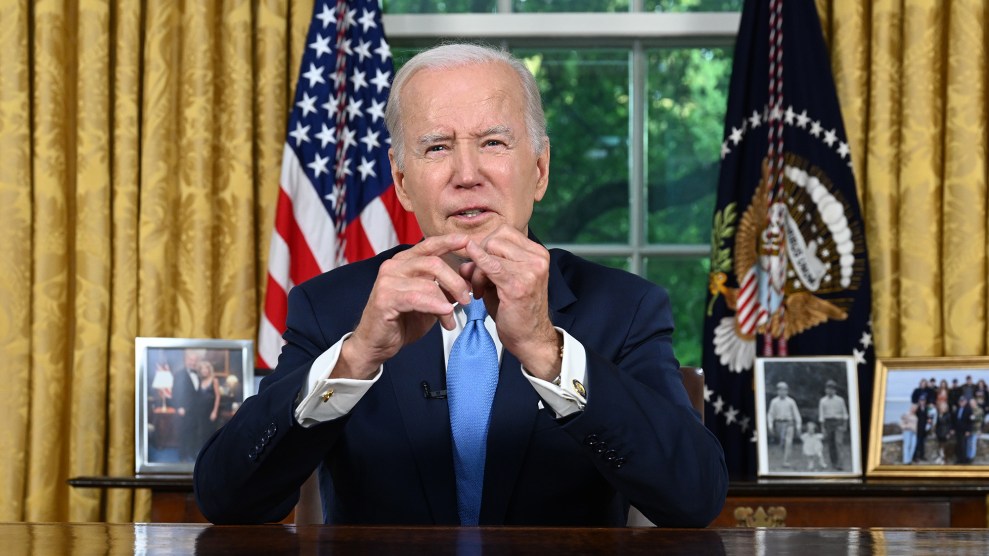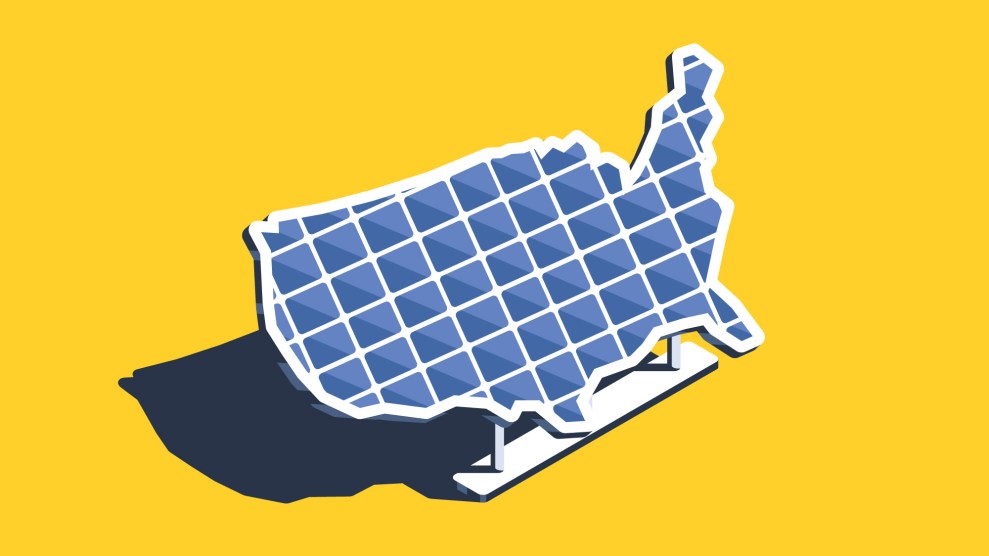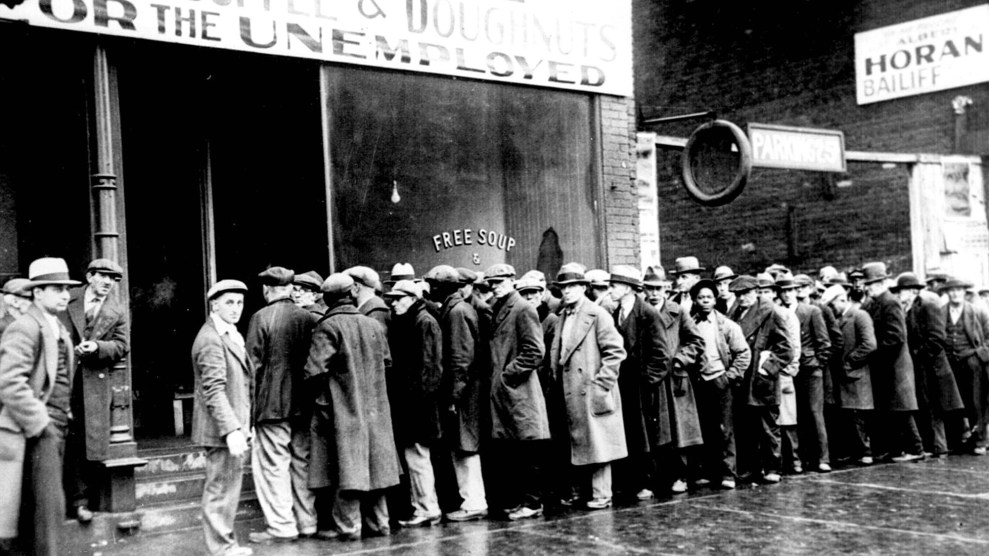
President Joe Biden addresses the nation on averting default and the Bipartisan Budget Agreement in the Oval Office on June 2, 2023 in Washington, DC. Jim Watson-Pool/Getty Images
President Joe Biden signed a debt ceiling deal on Saturday, averting a default on the nation’s debt predicted for Monday, thereby narrowly avoiding an international economic crisis. The House had approved the bill on Wednesday followed by the Senate on Thursday.
Biden, who brokered the deal with House Speaker Kevin McCarthy (R-Calif.), has framed the agreement as a bipartisan deal in the mold of a bygone era in which the two parties used to work together. In an address Friday evening, he framed the agreement as another of many bipartisan bills passed during his presidency, emphasizing that both sides came to the table and hammered out a compromise. “I know bipartisanship is hard and unity is hard, but we can never stop trying, because in moments like this one—the ones we just faced, where the American economy and the world economy is at risk of collapsing—there is no other way,” Biden said.
Biden was also careful to point out where he refused to compromise. He listed programs, including Social Security, Medicare, Medicaid, and his previous investments in clean energy that he refused to cut. But he opted not to detail his concessions, which include a two-year cap on nonmilitary discretionary spending and the clawback of some of the $80 billion Congress allocated to the IRS to help it crack down on wealthy tax cheats—a concession expected to cost the government money, despite Republicans’ stated goal of reducing the deficit.
The agreement also adds modest work requirements to some recipients of food stamps and cash assistance for families with children. Work requirements limit the availability of benefits, causing more poverty and hunger. Biden also agreed to end the pause on student loan repayment obligations put in place during the pandemic, an added hardship for Americans struggling with student debt. (The deal did not affect Biden’s student debt forgiveness initiative, which the Supreme Court is expected to rule on this month.)
The White House has justified its concessions by claiming that such compromises are inevitable in a divided government, and would be made during the budget process anyway. But it’s hard to imagine Democrats would have given away so much without the threat of a catastrophic default.
As he gears up to run for a second term, Biden certainly sees a political win in this deal. He avoided a default that could have been disastrous for his reelection prospects, and got an opportunity to tout his bipartisan, deal-making bona fides: See, I can work with Republicans and get things done.
But these wins obscure a significant loss as well: The debt deal legitimizes (yet again) the Republican tactic of pushing the economy to the brink in an attempt to get what they want. It’s asymmetrical warfare because, while Democrats have used debt ceilings in the past as an opportunity for dealmaking, they have never—and probably would never—threaten a default.
The deal Biden signed on Saturday will take the nation through the 2024 election, but when it expires, in January 2025, we may well witness a replay of the reckless brinkmanship we’ve come to expect from the modern Republican Party.
This post was updated to reflect that the deal was signed.













